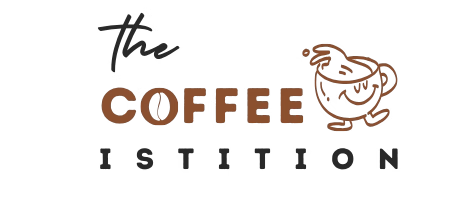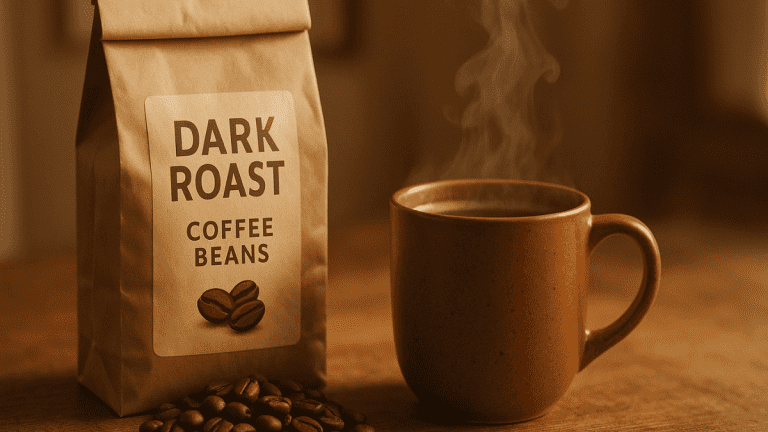
Let’s dive into the world of caffeinated drinks. Coffee and matcha are the go-to beverages for many when they need a boost. You’ve probably noticed matcha popping up everywhere as a vibrant, green alternative to your regular cup of joe. So, what’s the real deal between matcha vs coffee caffeine? This article will compare these drinks in terms of matcha vs coffee caffeine content and their effects on your health. We’ll help you understand which one might be the best fit for you, with benefits including how each drink affects your energy levels, potential health perks, and which one aligns better with your lifestyle.
What is Matcha?
Matcha is a powdered green tea from Japan. It’s made by grinding the entire leaf of the green tea plant into a super-fine powder. But here’s a cool twist: before these leaves are harvested, they’re shaded from direct sunlight. This shading process ramps up the chlorophyll and amino acid levels, giving matcha its vibrant green color and boosting its health benefits.
Taste-wise, matcha boasts a unique profile, a mix of earthy and umami notes, with just a hint of sweetness. The quality of your matcha plays a significant role in its taste. High-grade matcha has a smoother, richer flavor, while lower grades can be slightly bitter. This unique taste sets matcha apart and makes it a beverage worth trying. Matcha has three primary grades: ceremonial, premium, and culinary. Ceremonial Grade is the highest quality matcha, made from the youngest tea leaves, and is ideal for traditional tea ceremonies due to its smooth, naturally sweet flavor. Premium Grade is a high-quality matcha suitable for daily consumption. It offers a good balance of flavor and is perfect for lattes and smoothies. Culinary Grade is a more robust matcha, ideal for baking and cooking.
What is Coffee?
Coffee is the dark, aromatic beverage many of us can’t live without. It’s brewed from roasted coffee beans and is celebrated worldwide for its ability to kickstart our brains and boost much-needed energy. The taste of coffee can vary widely. Depending on where the beans come from, how they’re roasted, and how you brew them, you can get everything from bold and smoky flavors to something smooth and fruity.
Coffee isn’t just about the caffeine kick, though. It also contains antioxidants, like chlorogenic acids, which reduce inflammation. Its stimulating effects are immediate because the caffeine is absorbed quickly into your system. Different coffee brewing methods, such as drip, French press, and espresso, also affect the caffeine level. With that said, many love coffee because it instantly boosts alertness and helps them stay focused.
Caffeine Content Matcha vs Coffee
Alright, let’s get into the nitty-gritty of matcha vs coffee caffeine. We all want to know which one packs more of a punch!
- Coffee Caffeine Content: Generally speaking, an 8-ounce cup of coffee has about 95 mg of caffeine. But keep in mind that this can change depending on the type of beans you use and how you brew your coffee. For example, a shot of espresso has around 63 mg of caffeine, while instant coffee might have somewhere between 30 and 90 mg.
- Matcha Caffeine Content: Matcha is a bit different. A typical serving, about 1-2 teaspoons, will give you roughly 38-88 mg of caffeine. Again, this can fluctuate based on the quality of the matcha, how much powder you use, and how long you brew it. Also, matcha contains L-theanine, which changes how your body absorbs the caffeine.
- Summarizing Differences: So, what’s the takeaway? Coffee usually has more caffeine than matcha when you compare them serving by serving. But matcha gives you a more sustained release of caffeine, thanks to that L-theanine.
Energy Boost Quick Jolt vs Sustained Release
Let’s talk energy! How does that caffeine affect you?
- Coffee Energy Boost: Coffee is known for providing a quick and powerful jolt. The caffeine is absorbed rapidly, so you feel that kick almost immediately. However, this can sometimes lead to a crash later on, leaving you feeling jittery.
- Matcha Energy Boost: Matcha, on the other hand, offers a more gentle and sustained energy lift. The L-theanine in matcha helps slow down the absorption of caffeine. As a result, you get a calm and alert feeling without the jitters or the crash. This makes matcha a solid choice for staying focused and energized throughout the day.
Health Benefits Shared by Matcha and Coffee
Both matcha and coffee aren’t only about energy; they also have some excellent health benefits! Knowing that your favorite beverages also contribute to your health can provide a sense of reassurance and satisfaction.
- Antioxidant Properties: Both drinks are packed with antioxidants, which help protect your body from damage caused by free radicals. These antioxidants reduce oxidative stress and inflammation, which can help prevent various diseases.
- Weight Management: Caffeine can help activate brown fat, which boosts your metabolism and increases energy expenditure. Matcha contains EGCG, and coffee has chlorogenic acid, which has potential weight-loss benefits.
- Heart Health: The polyphenols in matcha and coffee can lower heart disease risk factors. EGCG, in particular, can help lower blood pressure and cholesterol levels.
- Brain Function: Caffeine, L-theanine, and EGCG can do wonders for your brain. They can improve your mood, sharpen your attention, boost your memory, and speed up your reaction times.
Unique Health Benefits of Matcha
Matcha has some unique health benefits that make it stand out
- Rich in Antioxidants: Matcha is super rich in catechins, especially EGCG. This EGCG has potential anti-cancer properties.
- Stress Reduction: Matcha’s L-theanine is excellent for promoting relaxation and reducing anxiety. It increases alpha waves in the brain, helping you feel calm and focused.
- Oral Health: Matcha can help keep your mouth healthy by fighting off bacteria and preventing plaque. The catechins act as sterilizing agents.
- Skin Health: Drinking matcha may also benefit your skin. It helps scavenge free radicals and slow down skin aging. A study also suggests that drinking green tea may be effective in scavenging free radicals, cancer prevention, hair loss, and skin aging.
Unique Health Benefits of Coffee
Coffee offers some unique health advantages.
- Source of Antioxidants: Coffee is an excellent source of chlorogenic acid, which can reduce inflammation and improve blood sugar levels. A Study shows that drinking coffee may help prevent inflammation, type 2 diabetes, and depression.
- Disease Prevention: Drinking coffee is linked to lower rates of type 2 diabetes and Parkinson’s disease. Coffee may reduce the misproduction of proteins that contribute to Parkinson’s. One study found that diabetes risk decreased by 6% for each additional cup of coffee consumed.
- Brain Health: Coffee may also benefit brain health. Drinking coffee is linked to a lower risk of dementia and depression. In a study, participants who drank around 1.5 cups of coffee per day had the lowest rates of depression.
Potential Downsides and Side Effects
Okay, let’s keep it authentic; matcha and coffee have potential downsides.
- Matcha: High doses of EGCG may lead to liver toxicity, so moderation is key. There’s also a risk of contamination with heavy metals if you’re not careful about the source. Also, it can be more expensive than coffee.
- Coffee: Too much coffee can lead to caffeine dependence. Some people experience unwanted side effects like insomnia, jitters, and anxiety. Coffee is also more acidic, which can irritate sensitive stomachs. A Study also shows that Matcha tends to be slightly less acidic than coffee. Coffee’s pH ranges from 4.85 to 5.13, while matcha has a pH of about 5.58 to 5.94.
Preparation Methods and Taste
How you make your drink can significantly impact the taste and experience.
- Matcha Preparation: Traditionally, you whisk matcha powder with hot water in a bowl. You can also make matcha lattes by adding milk. For greater authenticity and taste, you may need a traditional matcha scoop to measure the correct amount. Sieve your matcha powder through a matcha sieve to prevent clumping. Blend your matcha to creamy perfection with an electric milk frother.
- Coffee Preparation: There are many ways to brew coffee, including drip, French press, and espresso. The grind size, water temperature, and coffee-to-water ratio are crucial in the final result.
- Taste Comparison: Matcha has an earthy, vegetal, and slightly grassy taste. Coffee is bold, rich, and often bitter, with flavor notes that vary based on the roast.
How to Choose Matcha and Coffee Based on Your Needs?
So, which one should you choose? Here’s a simple breakdown to help you decide:
- Caffeine Sensitivity: If you’re sensitive to caffeine, matcha might be a better option because it contains less caffeine than coffee.
- Anxiety and Stress: Matcha is your go-to drink because it contains L-theanine, which can help promote relaxation.
- Digestive Issues: Matcha is less acidic compared to coffee, making it gentler on your stomach.
- Desired Energy Levels: Coffee is the winner if you need an immediate energy boost. But imatcha is the way to go if you’re after a sustained, gentle energy lift,
- Taste Preferences: Don’t forget to consider your taste preferences! If you don’t enjoy the taste of matcha, there’s no point in forcing yourself to drink it.
Tips for Transitioning from Coffee to Matcha
Switching from coffee to matcha can be a smooth transition with these tips
- Gradual Switch: Gradually reduce your coffee intake and replace one cup with matcha. Start with one cup of matcha daily and increase as you get used to it.
- Hydration: Drink lots of water to help with any potential caffeine withdrawal symptoms.
- Mindful Consumption: Pay attention to how your body responds to each beverage. Experiment with different preparation methods and flavors to find what you enjoy most. Err on the bigger side for a tastier cup with better crema.
Conclusion
Alright, let’s wrap things up. Both matcha and coffee caffeine have their unique benefits and drawbacks. Coffee gives you a quick jolt, while matcha offers a more sustained and gentle energy. Both drinks are antioxidants and can be part of a healthy lifestyle. Ultimately, the choice between matcha and coffee caffeine comes down to your preferences, needs, and body reactions. Why not experiment with both and see which one fits you best?
